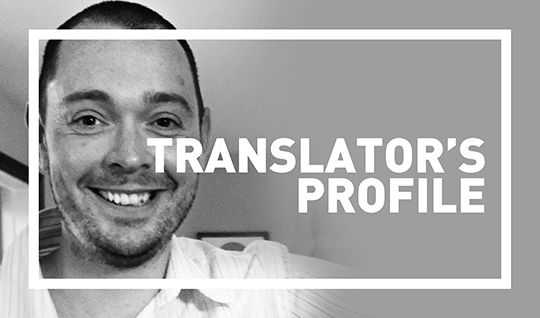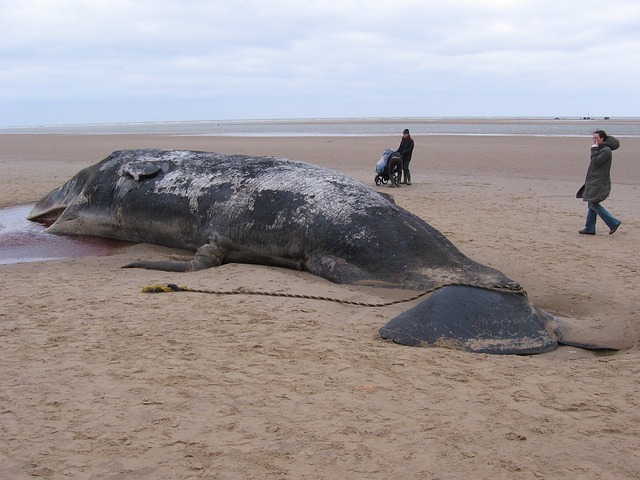Originally from Ireland, award-winning translator Peter McCambridge holds a BA in modern languages from Cambridge University, England, and has lived in Quebec City since 2003. He runs Québec Reads and now QC Fiction, which recently published Eric Dupont‘s Life in the Court of Matane, excerpted in Asymptote’s Translation Tuesday showcase on the blog and at The Guardian here.
Who is your favorite fictional character of all time?
At the risk of starting off a little lowbrow, I’d have to say Bernard Samson, the glass-half-full spy of Len Deighton’s “airport thriller” series. Nobody else comes remotely close, off the top of my head. I first read more or less everything Len Deighton had ever written when I was 11 to 14 and I’ve recently gone back to them in the new audio version. They go down perfectly after a hard day’s work. A hearty German meal in Berlin with Bernie and Werner and I’d be a very happy man, I think.
Who was your first favorite writer and how old were you when you discovered them?
In high school, the only thing I read and really loved was Edith Wharton’s The Age of Innocence. Thomas Hardy and a lot of other writers who were forced upon me left me cold. It’s funny: I’ve spent a lot of my life reading books that I’ve had to read. At university, I studied French and German literature, which didn’t leave much time for reading for fun. Looking back, a very small percentage of those books were ones that I really enjoyed and would happily read again. When I was younger, around 10 or 11, I remember reading The Secret Seven and a Hardy Boys adventure every night. To answer your question, I think my first favourite writer was Roddy Doyle. I’d also enjoy sitting down for a pint of Guinness with Roddy.
What is your favorite word in any language? Which word do you find most difficult to translate?
I’ve always liked tamisé in French, just for the way it sounds. I always think it sounds soft, like the lighting it describes.
What 5 books would you want with you if you were stranded on a desert island?
To the Lighthouse and The Age of Innocence were both amazing and really left a mark on me. I’d also bring Ulysses and finish working my way through it with the help of Frank Delaney’s wonderful Re:Joyce podcasts. The next two books on my hopelessly long to-read list would make up the five.
Which under-translated author do you think deserves wider recognition worldwide?
The obvious, truthful answer is Eric Dupont. He’s been compared in Québec to our very own Gabriel García Márquez and John Irving. I’m working hard to raise his profile through QC Fiction and Québec Reads.
Do you have a translation philosophy that guides your work?
I worked for a few years translating advertising copy, legal contracts, recipes, and healthcare leaflets before thinking about translating a novel. More importantly, I was revised the whole time and I learned a lot. My employer’s philosophy rubbed off on me and that was to write what the author would have put had they been writing in English. It’s harder than it sounds. “The original sentence tells the translator what the sentence should say but not how exactly to say it,” Lazer Lederhendler told me recently, and I think that sums it up well.
Which of the translations that you’ve worked on was the most challenging? Why?
I felt a lot of pressure translating Lori Saint-Martin’s The Closed Door. But Lori is one of Canada’s best and best-known translators into French so she was a big help along the way.
How did you learn your foreign language and how did you begin working as a literary translator?
I learned French and German in high school in Ireland, then studied French and German literature at Cambridge. But I like to say that I began speaking French when I moved to Québec City in 2003. Moving to Québec meant I forgot all my German. Only for me to meet and marry a German girl here. Which meant I suddenly had to relearn everything. And then try to understand Schwäbisch. Now we speak German at home and French to our friends and children.
If you could have been born in a culture other than your own which would you choose to be a member of? Why?
That’s an easy one: Québec. I moved here so that my children would have that chance.
If you hadn’t been a translator what profession would you like to have tried?
At the minute, I’m kind of switching professions as I try to devote more time to being a fiction editor. But otherwise I think I’d be writing for a magazine somewhere (since soccer goalie is probably not a very realistic answer).
Finally, in your bio, you mentioned that Life in the Court of Matane is the book that made you want to be a literary translator. Could you explain briefly why?
It’s hard to explain. I read Bestiaire, as it’s known in the original French, when it first came out and just fell in love with it. I still love it today—even after spending a year translating it! Now it’s like living with someone: you can’t quite explain what attracted you in the first place, you just know your life is better with them in it.



